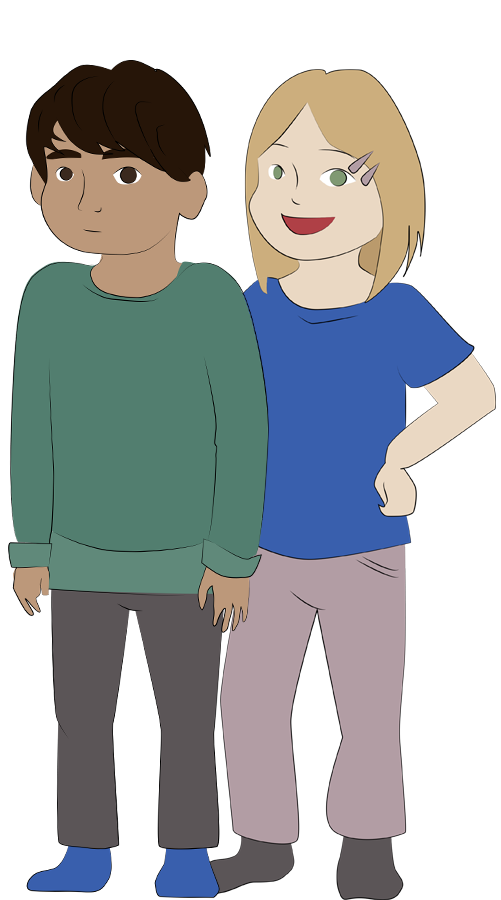Dear parent or guardian,
Thank you for being here. Your child is probably attending, or has already attended, the Together Without Racism training. The tasks and activities of the training may raise questions and reflections. Whether your child belongs to the majority population or to a marginalized group, it is important as a parent or guardian to discuss racism, as well as many other difficult societal issues. White parents in particular are often afraid to discuss racism and therefore might not start the discussion at all. However, it is possible to learn more over time, so the best way to begin is to just start the conversation. Together Without Racism workshops can be that beginning for the discussion. On this page, we will give you a few tips on how you can discuss racism and raise your child to be an anti-racist.
Racism and Together Without Racism training
Racism is a system in which a person belonging to one group of people is considered inferior to a person belonging to another group of people, for example on the basis of skin colour or culture. It involves a position of power from which some groups of people benefit at the expense of others.
In the Together Without Racism training, we deal with racism, privileges, power, prejudices and ways to combat racism. These issues can invoke different feelings. For example, we might feel uncomfortable when dealing with privilege. With children, the uneasy feeling may come from the realisation that because of racism and prejudices, life for some people may be more difficult and the different opportunities in life are currently more difficult to attain. And life is easier if you do not experience racism. However, it is also important to acknowledge that we can all make an effort to make the world better for everyone. It is also good to help children express their feelings and put them into words.

Even though we deal with complex issues, this training is just the beginning of a longer learning process. Racism is often difficult to identify, especially for a member of a privileged group, ie. in the Finnish context, for a white person who natively speaks Finnish: racism is not just unfair treatment of people, such as name-calling, but it is often hidden in structures and practices. However, identifying and tackling racism is facilitated by a constant effort to learn about racism and to reflect on one’s own actions and prejudices. We are all part of this racist system, and that is why it is all of our duty to take action against racism.
You can tell your child that racism and injustice are not the child’s fault, but that it is the adults’ job to create a fair world. However, you can think together what you both could do. It is good for children to be taught to be everyone’s friend and include everyone in games and group activities. It is important to set an example of yourself as an adult who condemns racism. It’s also worth introducing your child to diversity by reading books and watching series and movies together with diverse protagonists. You can make friends with people and families who look different from your family.
If a child encounters racism, do not belittle their experience, but allow the child to be sad and comfort them. Take care that you do not yourself make assumptions and generalizations about individuals based on skin colour. Consider your own prejudices and privileges. Don’t be colour blind, because even though there is only one human race, non-white people are treated unequally. Talking about skin colour helps to express racist experiences and put them into words. Appreciate the child as their own, unique self.
References
All Our Children (2022) Be brave and fare – A Guide for talking about equity with children.
(In Finnish)
Weir, K. (2021) Raising anti-racist children. American Psychological Association.
Read more in English:
Tools for speaking about racism and discrimination – A Guide for Families and Professionals. (Familia ry)
https://www.familiary.fi/uploads/7/1/8/2/71825877/rasisminvastainen_opas_netti_engl.pdf
100 race conscious things you can say to your child to advance racial justice. (Raising Race Conscious Children blog)
https://raceconscious.org/2016/06/100-race-conscious-things-to-say-to-your-child-to-advance-racial-justice/
